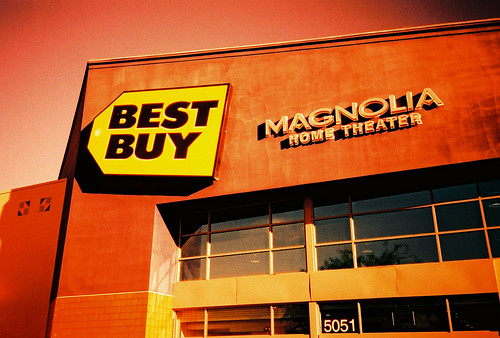Forbes ran a story on their website this week about Best Buy. The lead paragraph read:
“Electronics retailer Best Buy is headed for the exits. I can’t say when exactly, but my guess is that it’s only a matter of time, maybe a few more years.”
Then it went on to detail numerous problems with Best Buy’s supply chain.
Now, I have a friend who’s about to start a new job this year with Best Buy. She’ll be working with their supply chain. So I sent her the link.
Naturally, she was bummed. She started saying that, well, at least she’d get a nice line on her résumé out of the job. At least she wasn’t really planning on staying there all that long.
And that crushed me. Because it wasn’t too long ago that I was reading headlines like this about my own industry:
“Sometime soon, millions of people may find themselves unwittingly involved in a test that could profoundly change their daily routines, local economies and civic lives.
“They’ll have to figure out how to keep up with City Hall, their neighborhoods and their kids’ schools — as well as store openings, new products and sales — without a 170-year-old staple of daily life: a local newspaper.”
Newspapers and big-box stores: we’re not all that different. So I sent my soon-to-be-working-at-Best-Buy friend back an email. It read:
Hey, I work in journalism. My senior year, I every morning, I went to a site called Paper Cuts to see which newspapers were slashing newsroom jobs that day. I say this all the time: Journalism companies are in love with their own demise. Back then, I was too.
And looking back, I’m horrified. Why glorify your own downfall? We journalists have infinite tools at our disposal. Why not spend more time focusing on making journalism more awesome?
Anyway, I suppose that’s the challenge before you: Either buy into Best Buy’s slow demise, or get working at making everything you touch more awesome.
Time to get into the latter category. I hope my friend at Best Buy will. I hope my friends in journalism will, too.

